#lebanese feminist
Explore tagged Tumblr posts
Text

Huguette Caland. White Space, 1984.
oil on linen
13 notes
·
View notes
Text
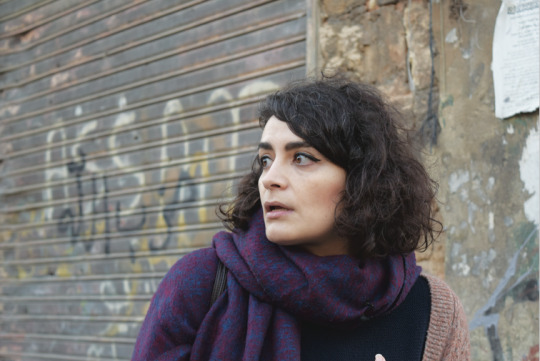
Jana Nakhal is a Marxist feminist organizer, urban activist and member of the Lebanese Communist Party's central committee
Returning to Foucault as he uses the concept of the panopticon. The panopticon is socially reproduced through the transformation of the women/queer people among themselves into a watchtower for the other. Through which they observe the other’s body, its size and shape, the hair that covers it, and pressures her to get rid of it or trim it, in acceptance of the male gaze, and internalizing the latter in the way women/queer people approach their own bodies.
In this context, it is important to see that what needs to be changed, the bodies that must be “improved,” are deficient bodies, in which there is a birth defect which must be constantly concealed, and its appearance monitored in order to preserve its “femininity.” Thus, the “process” of femininity is a process that alienates women from their bodies and makes them feel defective, while incapacitating them. Specifically, those who do not have the economic capacity, time, or any of the luxury and privileges required for this process.
The absence of public practices of torture and violence towards individuals who do not submit to patriarchal values related to the body does not mean that they are free with their bodies and practices. In reality, they are forced to face punishment of another kind. The demeaning of our curly hair, the frowning looks that face us when hair covers parts of our bodies that should not be covered, is only one form of this punishment.
Under patriarchy, the body is public property—particularly the body of colonized communities, of the trans and queer people, and women. That is, it is the property of society, the latter having the power to determine what it looks like, to control it, to dominate it, and to reject it when the body decides not to follow its standards. Hair is personal, intimate, or public. Hair also has a political structure, not because we want it to be so, but because colonialism and patriarchy made it so.
#marxism-feminism#Lebanese Communist Party#Jacques Lacan#Michel Foucault#continental philosophy#feminist theory#feminist phenomenology#feminist philosophy
14 notes
·
View notes
Note
How come so many shias support hezbollah even though it has syrian blood on its hands? Im shia and i never got it. Like i saw a post from a bosnian (who talks a lot about genocide in general and palestine) a while ago saying that its ok to have different feelings over naserallah's death because of different things (i.e. hezbollah helped bosnia during the genocide they were going through, but it also has syrian blood on its hands from interviewing with the revolution). Same thing for the houthis, ive heard for years from feminist spaces over people going in prison in yemen because of the houthis, and its not even anything serious. Is the end goal supporting palestine, and maybe after isreal's death, we start dissecting our own politics and groups in the region?
If Hezbollah wasn't in Syria, then Syria would've been overrun by ISIS and there would have been a genocide of religious and ethnical minorities, this is a fact that can not be denied. After all, don't ever forget what happened in Speicher. The opposition were more than willing to defect over ISIS as they were claiming land, given the overlapping ideology between the various Salafist elements, it was easier for them to adapt to the ideology of ISIS. The only difference between HTS and ISIS were its goals, they otherwise held the same belief. Why do you think Al-Baghdadi (la) and Al-Jolani (la) were negotiating between each other throughout the war? These people were in cahoots with each other, but westerners and libs fully embraced this tyrant just like they did with Osama, because the Syrians are free, I mean, maybe for the Sunnis in Syria, bnut not the rest. The Shi'a Muslims had every right to defend the Lebanese-Syria border and eliminate a threat to religious minorities. Furthermore, had the Axis not intervened, the war would ultimately give leeway for the revisionists Zionists and its imperialist benefector to secure more land and eliminate the Axis.
Materialistically, whether Hezbollah had blood in its hand or not, critical support is always important regardless of what you think. Assad was by no means good, even S Nasrallah (r.a) said that he acknowledged the war crimes that Assad committed, but that the alternative was no better, hence why Hezbollah had to secure the Lebanese border and intervene within Syria to prevent a spillover of Salafist Jihadist into various parts of Southwest Asia.
But now that Assad is gone, we are seeing the persecution of religious minorities, the elimination of secular institutions, the Settler state destroying and taking more of Syria, barbarians and executioners being appointed as ministers and Turkey using the opportunity to send its cannonfodder to attack the Kurds. It's only a matter of time until the consititution is completely rewritten and you'll have yourself a Sunni theocracy. The Syrian people did not win this war, the Turks, the Israelis, the US and the rest of NATO did.
130 notes
·
View notes
Text
We're trying to help others in need, spread information, and boost fundraisers!
Please consider checking this drive out, it has information about Venezuela, charity, artists that need commissions and so much more!
This docs made by @beforeliteracytherewasdeez
Also, please do check the following fundraisers!: Feel free to add / send us more fundraisers to add!
IMPORTANT: Every single fundraiser in this blog is tagged either #fundraisers or #fundraiser . This post gets rebloggued everytime it changes, please consider sharing and reblogging, too! We appreciate the likes, but the reblogs it's what will give the post more visibility and help the fundraisers get more attention!!! Also, if you find a fundraiser we haven't rebloggued, please tag us!!
MASTERPOST OF FUNDRAISERS
For these countries: 🇵🇸🇻🇪🇨🇺🇾🇪🇳🇮🇨🇩🇸🇩🇭🇹🇪🇹🇱🇧. Subjected to changes (ex. If we find/rb more fundraisers, we'll add them).
I haven't organized this one, but it has a various links. Shared by @serica-e
Palestine 🇵🇸
URGENT: help @yousra1-gaza Yusra' ask
Masterpost of fundraisers for 🇱🇧🇵🇸
Info in how to donate + fundraisers (Spanish)
Multiple links
Ways to help Palestinians
Help Samira!
The original ask was delated but this one has useful links.
Osama Basil
A list of asks
eSims
Needa's campaign
Juliet's ask | post
Imithital's ask
Hamdi Ayyad's ask
Hazem Mohammed
Salam's ask | Post
Docs of people vetted by @gazagfmboost
Docs of people vetted by @nabulsi and @el-shab-hussein
Donations for @90-ghost
Salah's family.
Sonic says freedom!
Juliet's ask
@pkmnbutch-inactive 's list of Palestinians' campaigns
Basel Ayyad's ask
Mahmoud's ask
Mohammed Ayyad's ask to @epickiya722
Hossam Al-Ser'a ask to @bobadila
Mahed's ask
Ali's ask
Asks/tags shared by @pteropods
Baraa Al-Shorafa's ask
Nadine's ask
Hadeel's ask
Nada's ask
@yasermohammad 's ask and donations
Ibrahim Mahed's ask
List of fundraisers by @tododeku-or-bust
Help Noor | ask
Khaled's Family's Ask
Help the family of a Children's Books Illustrator flee!
List of fundraisers shared by: @illamda-spaminations
Venezuela 🇻🇪
This raffle ends on September 10th, 2024!! By @silvervarian
Ways to help venezuelans
More ways to help venezuelans
Help @Lunes 's grandma, Dorka!
@pumpariah 's Commissions to Help Parents Flee!
The original ask was delated but this one has useful links.
Multiple links
Victor & Eldy
Valproic acid, national shipping
Vikoon's commissions shared by @systhemes
More venezuelan commissions
@transform-artion 's Commissions
Help a Venezuelan Family Flee! Shared by @yuissamidare
Cuba 🇨🇺
URGENT: Ester Asprón, a 2 years old.
Pocket's commissions!
Yemen🇾🇪
Multiple links
Nicaragua 🇳🇮
The only Nicaragua's links I've found in this hellsite
Democratic Republic of Congo 🇨🇩, Sudan 🇸🇩, Haiti 🇭🇹, Ethiopia 🇪🇹 , Lebanon 🇱🇧
Note: Campaigns for these countries oftentimes are together. We may, in a future, give a section for any and all of these countries, but for now they are together.
Fundraisers shared by @serica-e
Eman Abdelrahman's campaign
List of fundraisers shared by @marigoldcanaries
Help the Haitian Refugees in Ohio shared by @maeamian | A new Support Center @resolutedoubt
Masterpost of fundraisers for 🇱🇧🇵🇸
Help marginalized Lebanese People (ways to help: ) shared by @schoolhater
#fundraisers#free venezuela#free palestine#free congo#free cuba#free Nicaragua#free yemen#free democratic Republic of Congo#free sudan#lebanon#haiti#ethiopia
79 notes
·
View notes
Text
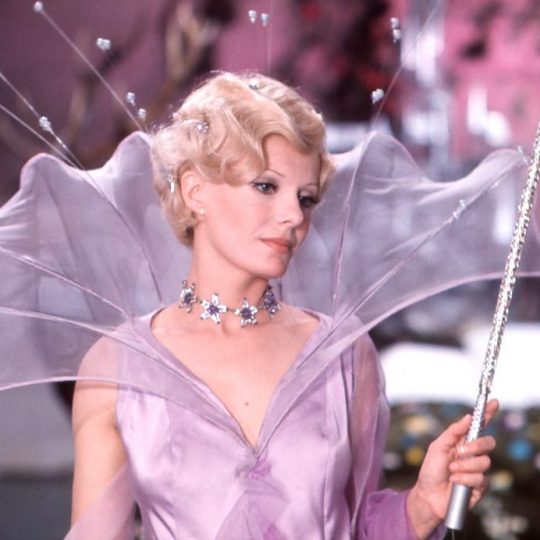

Propaganda
Delphine Seyrig (Last Year at Marienbad, Muriel or the Time of Return)—delphine seyrig was a magnetically compelling and radiant lebanese-born french actress, director, and activist, known for appearing in arthouse classics like alain resnais' enigmatic last year at marienbad and collaborating with avant-garde and feminist filmmakers
Ann-Margret (Bye Bye Birdie, Viva Las Vegas)—While she started as a singer, the lovely and talented Ann-Margret also left her mark as an actress in Hollywood. She won a Golden Globe for her first role in Pocketful of Miracles and was nominated again for Bye Bye Birdie, and very nearly stole the show from Elvis Presley himself in Viva Las Vegas.
This is round 2 of the tournament. All other polls in this bracket can be found here. Please reblog with further support of your beloved hot sexy vintage woman.
[additional propaganda submitted under the cut]
Delphine Seyrig propaganda:
Obviously she is very hot and talented, but she was also a filmmaker in her own right, making documentaries about the women's rights movement in France in the 1970s and choosing projects for their feminist subjects (Jeanne Dielmann for example).

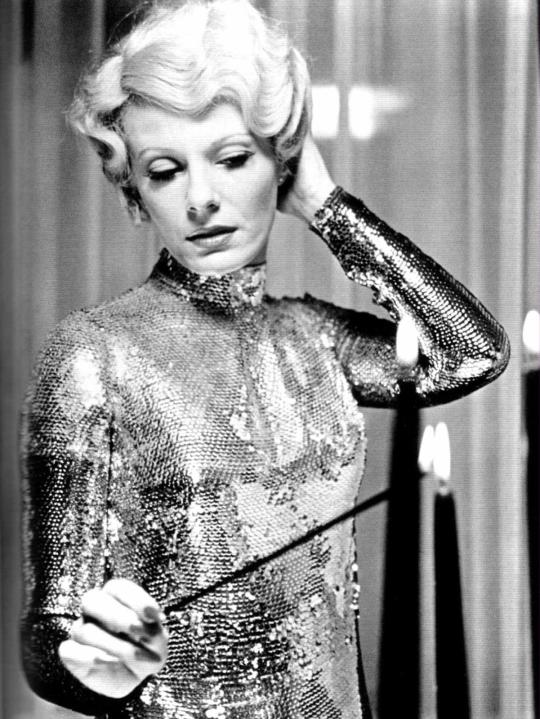
MILF. Who said that

Ann-Margret:


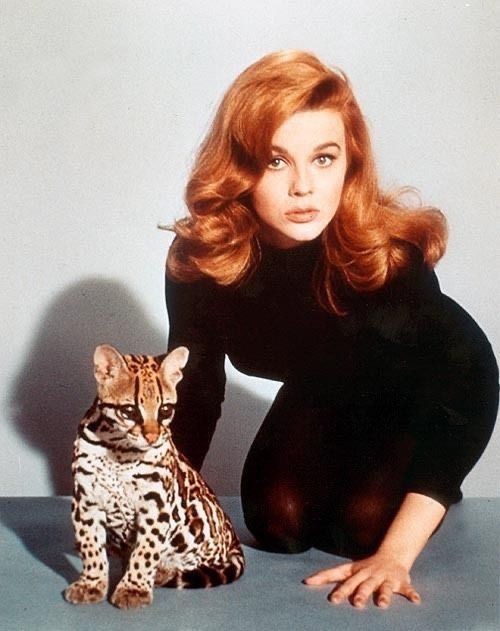
youtube
She can sing! She can dance! She had excellent chemistry with Elvis! She reportedly survived a 22 foot fall off of a stage! The movies and old and problematic but I love her 1000%


104 notes
·
View notes
Text
10 Jewish Women from History Part 3
Shulamit Kishik-Cohen (1917-2017, Israel)
Born in Argentina, she immigrated to Mandatory Palestine as a child, and grew up in Jerusalem. At sixteen, she married a Lebanese Jewish merchant, and raised seven children with him. She established ties with the Beirut Jewish community and authorities, and helped smuggle information from Lebanon and Syria, as well as helped Jews escape. She assisted the Mossad in bringing Jews of Arab lands to Israel.
Raquel Liberman (1900-1935, Argentina)
A Polish-Jewish immigrant to Argentina. Born in the Kiev Governorate of Russia, she moved to Warsaw as a child. She married and followed her husband to Argentina with two sons. After her husband died, she began working as a prostitute though the trafficking network Zwi Migdal. She managed to buy her freedom, but was then fooled into a fake marriage with a husband who stole her savings and forced her back into a brothel. She escaped a second time and contacted a police inspector, filing a complaint in court. Her testimony brought to light Zwi Migdal's crimes, and over 100 members were detained.
Miriam bat Benayah (late 15th century-early sixteenth century, Yemen)
Daughter and sister of scribes, she was a Jewish scribe herself. She, along with her father and brothers, are credited with copying 400 books together. In one scroll of the Pentateuch, she wrote that she had copied while nursing a baby.
Hannah van Recklinghausen (1332-1349, Netherlands)
A banker and the earlies woman merchant known by name in the Netherlands. The daughter of a Jewish Court Jew from Germany, she is listed as her father's assistant and colleague from 1347.
Urania of Worms (?-1275, Worms)
A Jewish women who led other Jewish women in prayer in the synagogue, one of a handful of women to be doing said occupation in the 13th-14th centuries. he daughter of a rabbi.
Reynette of Koblenz (~1340-~1390, Germany)
A Jewish moneylender. She became a moneylender after her first husband died and continued independently through her second marriage. The size of her financial dealings surpassed those of both her husbands. In 1372, in response to the demands of the Andernacher city fathers, she raised 8,000 guildens to pay them.
Dulcea of Worms (?-1196, Germany)
A Jewish businesswoman and moneylender in the twelve century. Coming from an elite family, she married a famous Jewish theologist and leader. While her husband devoted himself to religion, she pursued economy and business. She also conducted business in parchment scrolls for extra income, and was a notable figure in the community, leading and teaching women.
Paula Dei Mansei (?-~1288, Verona)
A Jewish scribe and Torah scholar, thought to be the earliest known female Jewish scribe. Belonging to a family of scribes, she contributed to her father's biblical commentary, and translated the work from Hebrew to Italian. She also transcribed a prayer book, and a collection of laws.
Estellina Conat (15th century, Italy)
A Jewish printer and the first woman active as a printer. She was married to the man who founded the first Jewish printing press in 1475, and was active in the press independently of her husband.
Brenda Howard, 1946-2005, America)
A bisexual rights activist born in the Bronx. A feminist, she participated in and planned queer rights activities, and was active in the Gay Liberation Front and other queer organizations. Her activism included the 1987 March on Washington for Lesbian and Gay Rights.
20 notes
·
View notes
Text
All The Women’s News You Missed Last Week
11/4/24-11/11/24
Donald Trump wins the US presidential election. His party also won control of the Senate and could take the House, potentially giving Republicans control of all three branches of the Federal Government. Women in Gaza continue to suffer disproportionally from indiscriminate Israeli attacks on citizens. Raygun retires. The Pope initiates dialogue with abortion activists.
Read my election special report here.
Want this in your inbox instead? Subscribe here
Trump Transition:
Anti-abortion advocates press Trump for more restrictions as abortion pill sales spike
Democrats had bet on women showing up in force. They didn’t
Susie Wiles: Who is Trump's new chief of staff?
US Supreme Court Justice Sotomayor ignores pressure to retire - reports
Melania Trump, enigmatic first lady who might do it differently this time
Women’s Health:
Olympic Boxer Imane Khelif Takes Legal Action after Leaked Reports Claim She Is a 'DSD' Athlete
Nigeria offers free Caesareans to poorer women
Pope pays house visit to veteran Italian abortion rights advocate
With little water, displaced Lebanese women worry about periods
Male Violence:
McGregor rape accuser telling 'web of lies', court told
‘Catfish killer used my photo to trap other girls’
Church of England leader Welby urged to quit over abuse cover-up
Trial starts over rape, murder of junior doctor in India's Kolkata
Nigeria rights body finds 'no evidence' military conducted secret mass abortions
Women In The News:
South Korean president sorry for controversies surrounding wife
Raygun retires from breaking after Olympic backlash
How a Chinese maths 'prodigy' unravelled in cheating storm
Princess Kate attends Remembrance Day event in return to public duties
Gaza mother struggling to feed children says only death can end their suffering
Gaza women, children are nearly 70% of verified war dead, UN rights office says
Arts and Culture:
Judith Jamison, a dancer both eloquent and elegant, led Ailey troupe to success over two decades
Movie Review: In Andrea Arnold’s ‘Bird,’ a gritty fairy tale doesn’t take flight
Taylor Swift wins big and Rita Ora pays tribute to Liam Payne at the MTV EMAs
Mattel says it ‘deeply’ regrets misprint on ‘Wicked’ dolls packaging that links to porn site
As always, this is global and domestic news from a US perspective covering feminist issues and women in the news more generally. As of right now, I do not cover Women’s Sports. Published each Monday afternoon.
#radblr#radical feminism#radical feminist#char on char#radical feminists do touch#radical feminist theory#radfem safe#radfems#radfem
5 notes
·
View notes
Text
"Today there are some who will try to separate Aswat [queer feminist Palestinian movement] from the Palestinian struggle and only relate to you on the basis of a universal sexual identity. But those who support your self-determination will not forget that you are linguistically translating your culture, your lives and your self-identities and your struggle to make it easier for those of use who are not fluent in Arabic to understand. But that does not mean that identities like lesbian, gay, bi, transgender, transsexual, intersexual have one universal meaning in all places, for all peoples, for all cultures, or in all historical periods.
Colonialism and imperialism have always tried to foment conflicts in order to divide and conquer. In the case of Palestinians, as Helem [Lebanese LGBT group] concluded, “[T]he rights of gays, lesbians, bisexuals and transgenders should not be placed in competition with the long struggle of the Palestinian people, including Palestinian LGBT people, for self-determination, for the right to return to their homes, and the struggle against apartheid and the occupation of their lands.”
Today we see how the imperialists—the U.S. to Israelis—use the experiences of women, of gays, of transgenders as pretexts for imperialist war. The white supremacist ideology replaces the colonial claim of “bringing civilization,” into imperialist claims that they are “bringing democracy.” But Washington and Tel Aviv have brought ruthless reactionary occupations to the Middle East.
Today the U.S. has made anti-gay, anti-trans, anti-woman rape and humiliation part of its science of torture and repression from the U.S. torture camp in imperialist-occupied Guantánamo, Cuba, to Abu Ghraib."
Leslie Feinberg on Pink-washing and rainbow imperialism in hir visit to occupied Palestine through ASWAT's invitation. 2007.
31 notes
·
View notes
Text


#Breaking! :
Local amnesia patient says she can remember stuff?! "I still remember playing new style boutique 2 as a kid, but I don't remember yesterday" is all she says in response to the backlash she has received. The movies say amnesia makes you forgot everything and I blindly believe that! Here's a deep dive into her personality and more!

Welcome to my little hospital in the corner of the internet
Reminder; you are enough plus you're also the funniest kernel on the cob and if you can't see that then we'll help
Hello, my name is Ritaᥫ᭡
I'm a teenage girl, Moroccan, Lebanese, german
This here is just a place for girl blogging and showing my hobbies including;
Sewing
Belly dancing
Online stuff
Reading and writing
Cooking and baking
I also like karaoke with my friends once in a while
Listening to music
I'm well versed in the magical girl scene (I'm still trying to watch all of Precure lmao)
I like music a lot and I'm always happy to get recommendations!! Just know I'm not some super crazy fan who knows everything (-ω-;)
I like a lot of things
I also am in a lot of fandoms
I don't want to seem like a pick me or smth for making u aware of this but I am mentally ill I have a diagnosis that I am not allowed to know and/or see/get in paper until I am older
"You're just saying that to convince yourself your different!"
I'm in fact not at least where I am it's for safety purposes but I do know a bit of what I have from other therapists and slip up's my psychiatrist had; ADHD, amnesia, extreme depression, maladaptive day dreaming, language development disorder and a few more that I can't know yet and will soon find out and remember that mental disorders aren't a quirky thing or a trophy and shouldn't be treated like so
If u call anyone a pick me for saying what they have of having something then you're a pick me yourself for putting others down and/or trying to make them insecure!!
I hate people who call everything expressive or alternative cringe/people who call everything that isn't mainstream and following sheep like cringe
Whoever says vivid strike is a good magical girl anime needs to be locked up because that anime is just lolibait and sexualizing kids><
Please call me Janaht! Nice to meet you, this is a place for girl blogging and just living out my little girly dream but this will also be set to let everyone anonymously tell their story and connect with other, I want this to be a place for vent to people and get some kind of tips and tricks from other girls this is a reminder to not put any NSFW or something explicit in my ask box or say smth explicit I want this to be safe for everyone ⋆˚ 𝜗𝜚˚⋆
I write reader inserts/x reader's on a two other blogs!
Vivid strike is that anime with a white haired girl beating up three girls up btw
Dni; lolicon, shoto, pedos, Israel supporters, rude people, people who call others pick mes for having a body or interests, misogynistic people, misandrists, anti feminists, never come near my blog if this is you, people who take time out of their day to hate, people who hate other religions than their own, people who just hate religion for no reason, girls who mock other girls/put them down for having body hair acne or smth else that's mostly uncontrollable, idc if you're a girl or a guy but if you're a bad person I will not hesitate to block and report you, homophobes, people who use religion as an excuse for homophobia just because your religion doesn't support it doesn't mean you should harass someone since that's also a sin, BOTS WHO TRY TO SCAM YOU AND/OR S3X BOTS and just rude just bums in general y'all need to leave immediately Boo tomato tomato no one likes a deadbeat like you
Honorable dni mention; people who say to mentally ill people to just pray it away, how I learned it and how my semi religious mom told me; "god gave you these disorders as a test, to see how strong minded you are and if you will push through to the end" this doesn't need to be said to everyone but you have to accept that and let people talk more about their feelings
This got a bit long but I just want to be specific to make sure people are safe!! >:3
🍰🍰🍰🍰🍰🍰🍰🍰🍰🍰🍰🍰🍰🍰🍰🍰🍰🍰
Feel free to: vent, complain about something happening to you, ask for tips from me or other girls, talk about your complicated relationship with religion (don't worry we all feel like that sometimes but you can always find your way we'll be there to help), use my ask box or text me to connect with an interest we have or to ask a question about an interest we share, using my comments or smth else to make new fellow friends with the same problem/similar people even if it means spamming me, but please don't put gore or smth in my ask box I'll allow a few things like smth from lacey games but put a trigger warning and a lot of spaces and dots to let people scroll fast without seeing it
Ex:
.
.
.
Continuing; I can't stress this enough but I want this to be safe and fun for everyone here so no gore weird stuff or anything that may be harmful/triggering for someone, "why would a muslim allow lgbtq people on here?" They aren't making me sin, want me to sin or want me to give up my religion that's why I allow them on here and they aren't hurting anyone (if they do then I'll block them like anyone else), more to be added
A few rules;
you may not agree with my or somebody else's views on life but that's no reason to harass them don't do that,
don't be weird and icky towards someone,
NO MEANS NO,
LEAVE ME ALONE MEANS YOU NEED TO LEAVE THAT PERSON ALONE WHEN THEY'RE LIVING THEIR LIFE WITHOUT HARMING SOMEONE,
if I don't see or miss someone who's harassing you or someone else just ping me in a reply and block and report them ASAP,
Everyone deserves respect until you're given a reason not to, if your religion does say you aren't allowed to respect someone for a sin they're doing or smth else then that's ok in my eyes but please don't harass them that's basic humanity
This blog is also supposed to be a bit like one of those "virtual older sister" places where u can say smth u r too embarrassed to say IRL to someone u can come here, go anonymous and ask what you want to ask ( example; advice tips and or tricks or just friendship advice) then I'll be here to help or find u an answer, if u have an answer for someones problem don't be shy to say it! And it's ok if u don't want to say or are too shy,
This is getting long so feel free to ask me smth if you're still confused or want to make something sure

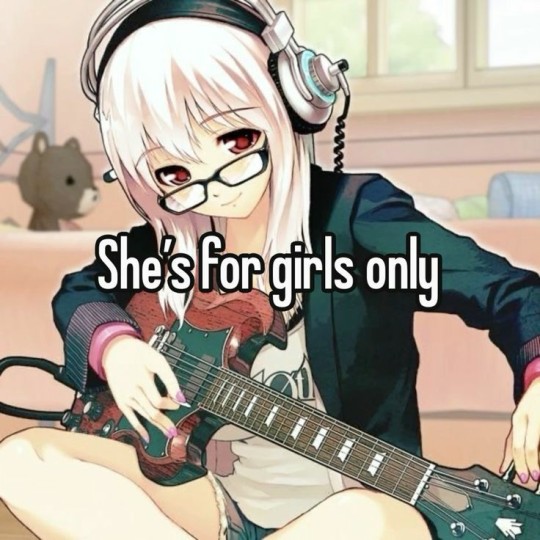

More to be added or until I can make this cute and aesthetic<3 sorry this got so long but I'm glad u read it until here <33
Anyway if u couldn't tell I want this to be like a little hospital for people who never had someone help them learn important stuff like cooking, how to deal with girl problems, how to pick your fights etc. I also want to try and give friendship advice or let you vent lol
- xoxo Janaht



Last updated; 06:33 Sunday 26th of January 2025
#lady amnesia#about me#pinned post#pinned info#pinned intro#intro post#introduction#blog intro#introductory post#girl things#girl interrupted#this is a girlblog#girlblog aesthetic#girlblogging#girlhood#girls mode#new style boutique 3#new style boutique 2#female rage#female hysteria#girl hysteria#girlhood is a spectrum#hell is a teenage girl#manic pixie dream girl#girl interupted syndrome#the virgin suicides#Spotify
2 notes
·
View notes
Text
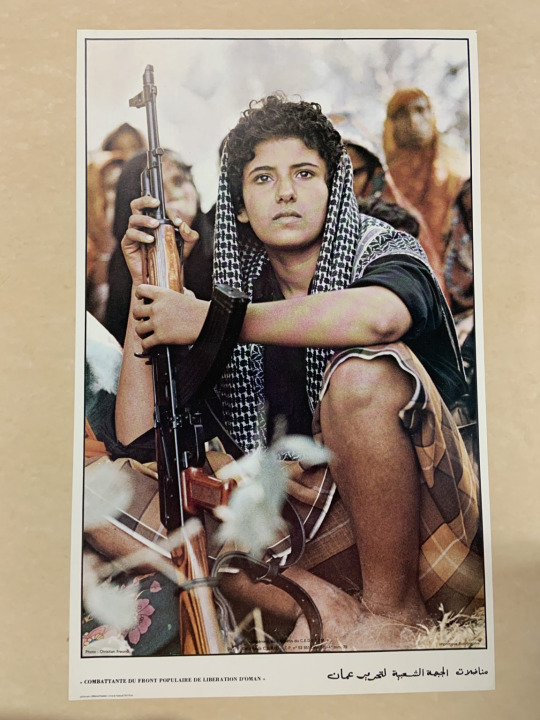
A poster of a female cadre photographed by Christian Freund. Source: Center for the Study of Political Graphics (CSPG).
Women’s Liberation
A striking aspect of the popular revolutionary movement in Dhufar was the PFLOAG’s commitment to the liberation of women, a policy that was adopted at the 1968 Hamrin Conference. The PFLOAG believed that the liberation of women was central to the success of the revolution which would not come about automatically but through a sustained struggle against the “objective backwardness” of society. 1 The Dhufar Revolution was influenced by Maoist thought, including on the equality of female cadres, popularised through Mao’s famous declaration that “women can hold up half the sky”. 2 Women’s political participation in the armed struggle alongside men was deemed an important aspect of equality while specific policies were later implemented in the liberated areas to transform the social position of women, such as the banning of female circumcision, polygyny, and the reduction of the bride price after unsuccessful attempts to abolish it completely.
The PFLOAG’s policies remarkably challenged the “unhappy marriage” between feminism and Marxism, as conceptualised by the Western feminist scholar Heidi Hartmann in 1979 – in other words, the tension between women’s liberation and national liberation. 3 The PFLOAG recognised the double oppression faced by women, both in terms of their position as women in relation to men, and in terms of their position as women in relation to the economic system. Attracted to the PFLOAG’s radical position, the Lebanese filmmaker Heiny Srour travelled to Dhufar in 1971, capturing documentary footage of women fighters later used in her 1974 film The Hour of Liberation Has Arrived (Saat El Tahrir Dakkat).��4
I was a defeated feminist in Lebanon. The Lebanese Left was not interested in feminist issues and kept closing the subject under various pretexts, one being that the women will be free when the main enemy, Imperialism, is defeated. […] I couldn’t believe my ears when the representative of the Popular Front for the Liberation of the Occupied Arabian Gulf opened the subject of women from his own initiative and proudly said that the Front was fighting against women’s oppression — because women were not just oppressed by imperialism and class society, but also by their father, husband, brothers. I dropped my other film projects and put all my energy into making this film. 5”
— Heiny Srour on The Hour of Liberation Has Arrived
The campaigns for, and implementation of, the above mentioned policies came through the initiatives of revolutionary women, the Bahraini cadre Laila Fakhro (Huda Salem) for example pushed the PFLOAG to ban female circumcision and limit the bride price. 6 Laila Fakhro also played an important role in the revolution through political education, teaching, care-work, women’s activities, and the PFLOAG’s media and foreign relations. 7 The PFLOAG’s other main periodical, 9 Yunyu (9 June), was a monthly magazine which preceded Sawt al-Thawra’s founding, set up in June 1970 by Laila Fakhro and Abdel Rahman al-Nuaimi (Said Seif). 8
Sawt al-Thawra promoted women’s political participation in armed struggle, drawing parallels to female fighters such as Vietnamese women and thereby placing the PFLOAG’s revolutionary women in the wider tradition of the revolutionary Third World. The periodical highlighted and documented women’s protest, arrests and mistreatment of women and girls by the British-backed regime, and women’s internationalist activities. Women’s representatives and delegations took part in many regional and international conferences, prior to and after the official establishment of the Omani Women’s Organisation in June 1975, a committee headed by Wafa Yasser.
The first official visit by an Omani women’s delegation, comprising Nadia Khaled and Huda Muhad, took place in July 1975 in a symposium on women’s economic development organised by the Soviet Women’s Committee in Alma-Ata, Soviet Republic of Kazakhstan. Following this trip to the Soviet Union, the delegation visited the Democratic Republic of Vietnam at the invitation of the Women’s Federation of Vietnam. 9 These encounters were important for producing strong ties of solidarity, the exchange of experiences and ideas, and direct engagement with a major source of their own inspiration, the Vietnamese people’s struggle. Most significantly, these material links demonstrate that Dhufar was not a detached revolution in a little-known and distant part of the Gulf, but one that was globally connected and which importantly placed emphasis on women’s political participation.

#marxism-feminism#oman#Popular Front for the Liberation of the Occupied Arabian Gulf#revolutionary feminism#revolutionary women#women guerillas#Dhofar Rebellion
98 notes
·
View notes
Text
Poet of the day : Leila Baalabaki 🇱🇧🌿

"In the beginning was the face–– I dove into a delightful dream. Suspended in grey space, I no longer tasted dust in my mouth. A drowsy frost settled on my fingertips and toes. No ground below me, no cement nor tiles; I became a cloud." - Opening of “I Attended the Birth of Dawn,” by Leila Baalabaki
Baalabaki was known for her revolt against authority and traditional values. Baalabakki was born 1936 in Beirut, Lebanon where, during her adolescence, she began to push against barriers and purued a higher education at Beirut Jesuit University. She studied literature as she began to work for the Lebanese Parliment, in this she realized the role the goverment has in the perception of women and detested the image of Arbian women portrayed by the West. In 1958 Baalabaki wrote her first novel , I Live, at just 22 years old. Balabakki illustrates an internal feminist experience that conflicts with external social culture. Baalabaki was later charged with "endangering public morality" and much of her work was burned or banned.
5 notes
·
View notes
Text
Leila and The Wolves: Revolutionary Feminism and the Importance of Third Cinema

Image by Cinema of Women Presents
Leila and the Wolves created in 1984 by Lebanese filmmaker Heiny Srour follows the story of a young woman named Leila. Leila lives in London and can travel through different points of Middle Eastern history through the collective memory of women a part of the 20th-century Palestinian and Lebanese resistance movements. The film is framed through a radical and feminist lens and highlights the women central to the Palestinian liberation struggle, serving as a testimony to their revolutionary spirit.
Srour’s approach to the film's formal elements solidified her status as an innovative filmmaker — reflected through the film’s radical political commitments through challenging dominating structures of occupation and colonialism. The film reflects these commitments through Leila’s ability to travel through time and space. Leila’s power bridges the gap between the past and present, giving agency to the Arab women often erased in historical narratives. Srour employs Leila's ability to time travel offers a transformative approach to interconnecting various periods of a collective history — contributing to a richer and textured narrative.
At the beginning of the film, Leila is transported to the West Bank in the 1920s. While Leila is there, she witnesses a violent demonstration and the cruelty inflicted on the Palestinian people. She is shortly taken back to the present, and the brutal imagery remains etched in her memory. During a conversation with her partner, Leila questions why he exclusively selected photos of men in the exhibit showcasing the Palestinian struggle.
He responds, claiming he doesn't recall any images featuring women and that they had no role in politics back then. This scene is juxtaposed moments later when Leila is transported back to the West Bank in the 1920s, and the viewer witnesses how the women resist colonial subjugation. The women are strategic in their resistance — flinging rocks and pouring boiling water at the unsuspecting colonial officers from the balcony.
Film scholar Vivianne Saglier expands on this theme, “My argument navigates the tension between historical continuities and ruptures intrinsic to disenchantment by re-articulating the relationship between historical projects of decolonization and later decolonial feminist approaches, which materialize in Srour’s “post-Third-Worldist praxis”.
Srour’s filmmaking style in Leila and the Wolves resonates with the principles of third cinema, which disrupts conventional American narratives. As mentioned by Saglier, “Srour’s cinema of liberation experiments with myth-based historiography to establish connections between distinct epistemic worlds across time, space, and gendered groups—what Lugones calls “world-travelling,” the realization and negotiation of the plurality of epistemic worlds that enrich the construction of collectivities”
With this framework in mind, the spectator immerses themselves in the gendered collective memory of the Palestinian liberation struggle. These instances are witnessed through Leila, as she acts as the viewer's guide. The viewer can observe the women gathering to manufacture bullets out of old residue, strategically concealing weapons to bypass checkpoints, and taking up arms to resist the 1948 Deir-Yassin massacre. These acts of resistance reflect how Leila and the Wolves stand as a tribute to the revolutionary and feminist spirit of Arab women.
Leila’s ability to serve as a historical witness in combination with archive footage enables the viewer to tap into the collective memory and shared trauma of the Palestinian plight. The archive footage often shows the violence occurring on the front lines and the heartbreaking display of Palestinian refugee camps.
While Srour's methodology enhances the depth and authenticity of the story, many Arab male filmmakers during Srour's time, often fell short in this respect. Srour comments on Arab men’s films such as Borhane Alaouie´’s Kafr Kassem (1968), Youssef Chahine’s Al-Asfour/The Sparrow (1972), or Tewfiq Saleh’s Al-Makhdu‘un/The Dupes (1973) often represented women in a one-dimensional perspective—typically relegating Palestinian women into symbolic representations that mirrored patriarchal narratives such as passive beings or the docile mother identity.
Srour’s decision to integrate archive footage while displaying women’s political role in liberation struggles contrasts with this traditional narrative. This approach to storytelling not only adds a layer of historical context but underlines that the efforts and struggles of Arab women are not fictitious or symbolic representations but are grounded in historical authenticity.
In doing so, the film paints a broader picture of the Palestinian liberation struggle and illustrates its feminist principles. In a world that often erases the contribution of women’s historical efforts, Leila and the Wolves is a groundbreaking form of media that commemorates the revolutionary commitments of women at the heart of the Palestinian liberation struggle.
Heiny Srour gives us more than just a story; she presents a lesson, a memory, and a call to not forget the sacrifices made by Arab women at the forefront of the Palestinian liberation movement. Although Leila and the Wolves was released nearly 40 years ago, the depiction shown in the film reflects the material reality of Palestinians today, from having to navigate checkpoints in their own land to being displaced from their homes to live the rest of their lives in refugee camps. Srour’s approach to storytelling is a reminder that the struggles of the past continue to echo in the present, urging the viewer to reflect on the challenges Palestinians face today.
Saglier, Viviane. "Decolonization, Disenchantment, and Arab Feminist Genealogies of Worldmaking." Feminist Media Histories, vol. 8, no. 1, 200.
6 notes
·
View notes
Text
An embrace of queer identity and intimacy, the newly installed exhibition 'Habibi, the revolutions of love' showcases and questions the ideas surrounding queer love in the Arab world and beyond, countering orthodox perceptions through creativity.
Florence Massena 08 February, 2023
In a colourful setting on level -1 of the Arab World Institute (IMA) in the heart of Paris, installations, videos, paintings, drawings, designs and embroideries are showcased until February 19 under the title Habibi, the revolutions of love.
The exhibition focuses on queer love and expression in the Arab world, as well as Iran and Afghanistan, shedding light on an often taboo topic in the countries the artists come from.
The exhibition itself is far from a narrow portrayal of love under oppression.
It goes through motions and narratives, embracing more complex issues such as exile, politics, survival, intimacy and finding happiness, either at home or abroad.
The selection of more than 20 artists, sometimes gathered in collaborations or collectives, from very various countries such as Syria, Lebanon, Morocco, Sudan, Saudi Arabia, Iran, Afghanistan, Algeria, Jordan and Tunisia, bring to life a lot of creativity and desire.
The exhibition turns easily into a conversation between the artists and the themes, which answer each other with harmony and subtlety.
The project itself was born from conversations led between curators and contemporary artists during and after the IMA’s exhibition Divas, from Oum Kalthoum to Dalida back in 2021.
“There were these constellations of themes that could be explored setting up around us, and we have seen a lot of interrogations on genders and sexualities,” Elodie Bouffard, the exhibition curator alongside Khalid Abdel-Hadi and Nada Majdoub, told The New Arab. “It kind of imposed itself on us!”
The choice was not to focus on geography and lead a “country by country” organisation, but instead to highlight the creations’ quality and make it a topic among the others as it is often done in an institution such as IMA.
“The artistic expression is itself enough, led by a new scene that will certainly make the contemporary scene of tomorrow,” Elodie said.
“We made sure to see what united the pieces, and we saw that it goes beyond the topic of sexuality. Some cross paths, some clash with their activism and others are more playful, some are feminists… The queer topic is the line that allows us to question the ideas of norms, social identities, body’s politicisation, the question of surveillance as well as the way others perceived you, notably through the European gaze.”
Despite the choice to open to many countries and artists, Lebanon is overly represented, through the presence of many Lebanese artists but also artists who lived and worked in Beirut for a few months or years.
“In Lebanon, you have a lot of personalities, many spaces dedicated to cultural interventions as well as an activist History through organizations like Helem for example [first LGBTQIA+ rights organisation in the Arab world] that did a lot for LGBTQ+ struggles,” Elodie explained. “All of this combined makes Lebanon an unavoidable place to work and exhibit for queer artists from the region.”
This is the case of Alireza Shojaian, an Iranian artist born in 1988 and who lived a few years in Beirut before moving on to Paris in 2019. “I was an artist in Iran but my art was sitting in my closet,” Alireza told The New Arab.
“In Lebanon, I could create and be exhibited, there is freedom and space to do that there and that’s why it’s so represented in that exhibition. You know, the first time I was exhibited was in another Arab country! I often feel that the Iranian authorities try to prevent us to travel to the rest of the region so that we don’t find the spaces of expression that exist.”
The main work he is exhibiting is a big mural called The Mirror, a self-portrait representing his suspended time in Beirut through the city in the background, his identity through the books on the shelf and his state of mind, a lingering sadness as a person in exile.
It also represents five photographs on the mirror, one of an intimate moment of his life, one of his military service, Bashasha and a friend by 1950s Lebanese photographer Heshem el Madani, US gay activist and politician Harvey Milk, as well as Two Men Dancing, a photograph from Robert Mapplethorpe, from a 1980s performance piece entitled The Power of Theatrical Madness.
Shojaian felt important to participate in such an exhibition, first because of its location: “It’s in an institution dedicated to the Arab world and the topic LGBTQ+ has always been neglected there. It is important to show that this topic exists in the Arab world, and towards the West to also remind them where the laws and rules against homosexuality come from, that maybe they can help.”
Most of the official status in the Arab world on homosexuality was taken during the British and French mandates and occupations, for example in Lebanon as a colonial relic from the early 1900s. “It is also for me, as an Iranian, because I am able to give my voice to the thousands who can’t speak up in my country,” Alireza added.
Also quite political, Tunisian artist Aïcha Snoussi, born in 1989 and currently living in Paris, decided to tackle the tough topics of the people who drowned during the crossing of the Mediterranean sea through a big installation, as well as the troubles of the world through a self-portrait, pensive in her room. “The two works echo each other,” she told The New Arab.
“Multiplicity on one side, with more than 700 bottles filled with old paper, archives, inks and organic elements. The uniqueness on the other side, that of a canvas made of the same materials but recounting the chaos of the world from within.”
In the exhibition, Aïcha also noted the themes of exile, history, archives, memory, transmission and struggle, which are according to her “intimately linked to that of the body, its representations and these evanescences”.
“These sensitivities and trajectories give rise to new narratives, which are relatively under-represented in art but also in queer culture, and therefore necessary,” she added. “It is also a visibility that sends a message of power and resistance to those who recognize themselves in it.”
Other artists chose to address those themes of both love and exile through a more intimate approach, such as the Lebanese visual artistic duo Jeanne & Moreau, composed of Lara Tabet and Randa Mirza.
They set up a bedroom displaying pictures and videos they exchanged during their long-distance relationship time as well as when they started living together, first in Lebanon then in France, through crisis, exile and changes in their approach to art and each other.
“First we were apart, there was a desire of seduction, then the 2019 crisis in Lebanon with an economic collapse and then the explosion of the Beirut port,” Lara Tabet told The New Arab.
“At the same time as those repeated crises, our relationship changed too. We decided to exhibit a bedroom, where a lot of intimate things are renegotiated, which also represents a delicate balance between the idyllic privilege of living as a nomad and the harshness of forced exile, as well as domesticity.”
The installation combines intimacy inside and activism outside for their country, the crisis inviting itself into intimacy through the destruction of their Beirut apartment during the August 2020 explosion.
Sexuality, struggles, identity and perception of yourself go across the narratives IMA exhibited in an explosion of themes, freedom and colours in an expression space where audiences often associate pain and shame.
#queer#arab#iran#afghanistan#lebanon#tunisia#Arab World Institute (IMA)#arab world#queer arabs#gay arabs#lgbt arabs
9 notes
·
View notes
Text
0 notes
Text

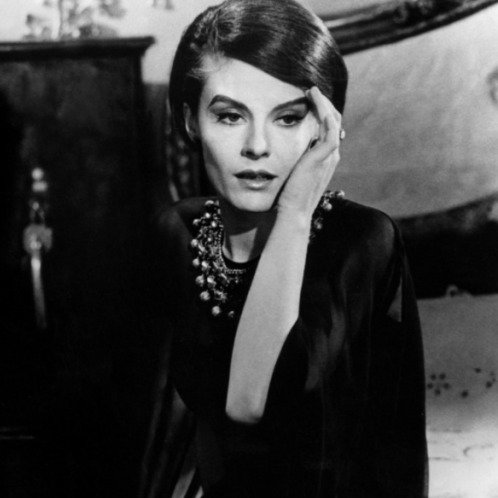
Propaganda
Milena Dravić (Horoskop, Kros Contri, Devojka)—She's obviously not a Hollywood star. But she's absolutely THE biggest star from Serbia/Yugoslavia and one of the most stunning faces of European cinema. She was obviously the hottest in her film W.R. - Misterije organizma (just google it) but that's from 1971 so I guess that we can't count. But listen! She was stunning even in her earlier films. Her charisma was unparalleled. She's mostly known for Yugoslav Black Wave films (including Puriša' Djordjevič movies) but she starred in basically everything. I wish more people would remember her and appreciate her because she was truly the 60' icon.
Delphine Seyrig (Last Year at Marienbad, Muriel or the Time of Return)—delphine seyrig was a magnetically compelling and radiant lebanese-born french actress, director, and activist, known for appearing in arthouse classics like alain resnais' enigmatic last year at marienbad and collaborating with avant-garde and feminist filmmakers
This is round 1 of the tournament. All other polls in this bracket can be found here. Please reblog with further support of your beloved hot sexy vintage woman.
[additional propaganda submitted under the cut.]
Delphine Seyrig propaganda:
Obviously she is very hot and talented, but she was also a filmmaker in her own right, making documentaries about the women's rights movement in France in the 1970s and choosing projects for their feminist subjects (Jeanne Dielmann for example).

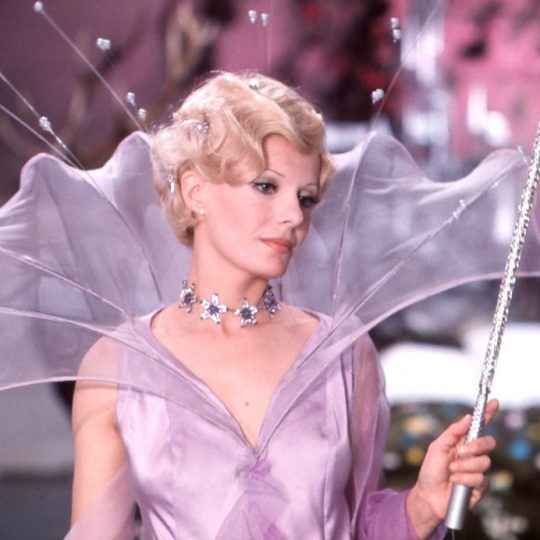
MILF. Who said that
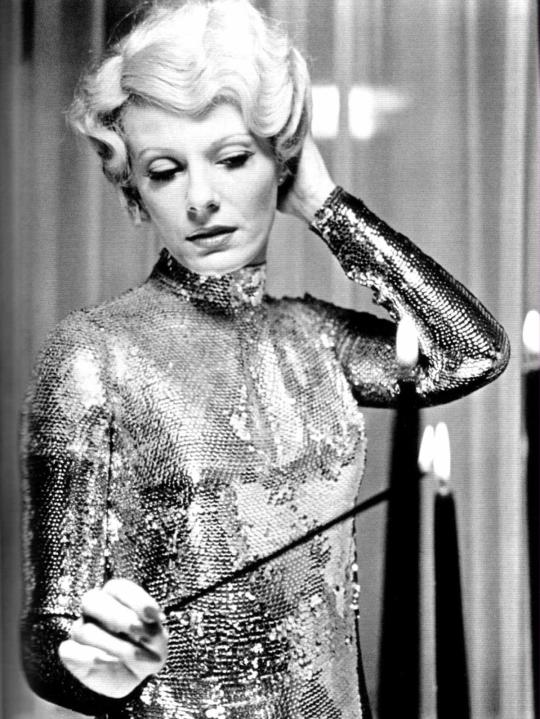
102 notes
·
View notes
Text
News Post
Palestine
Trump to worsen our plight: Palestinian, Lebanese victims of Israel’s wars | Israel-Palestine conflict News | Al Jazeera
Trump has a choice: Obliterate Palestine or end the war | Middle East Eye
Palestinian patients leave Gaza in rare medical evacuation (bbc.com)
Assailants shouting 'free Palestine' brutally attack Israeli soccer fans in Amsterdam | The Times of Israel (Israeli fucks were attacking Arabian and Palestinian fans first. They just fought back in self-defense but according to the media it is antisemitic to do so.)
Lebanon
Updates: Israeli strikes on Gaza kill over 50; attacks on Lebanon continue | Israel-Palestine conflict News | Al Jazeera
2-Year-Old Boy Buried For 14 Hours After Strikes In Lebanon, Survives (ndtv.com)
Israel’s war aims in Lebanon are expanding (economist.com)
Israeli bulldozer destroys part of UN structure in south Lebanon: Unifil | Middle East Eye
Israel killed over 3,100 people in Lebanon since October 2023: Ministry | Israel attacks Lebanon News | Al Jazeera
Syria
Israel carries out ground raid into Syria, seizing Syrian citizen | AP News
Syria condemns deadly Israel air strikes on ‘civilian sites’ near Damascus | Israel attacks Lebanon News | Al Jazeera
Rojava will not surrender to Turkish attacks - Medya News
Inside the Feminist Revolution in Northern Syria (noemamag.com)
Ukraine
New Details of First Ukraine Attack on North Koreans in Russia's Kursk - Business Insider
Ukraine is forced to confront a brutal Trump reality that it hoped would never happen | CNN
Zelenskyy rebuffs Trump’s proposal for rapid peace deal in Ukraine war – POLITICO
Zelensky confirms deadly clashes between North Korean and Ukrainian forces (axios.com)
Sudan
RSF siege of Sudan's Al-Hilaliya leaves dozens dead - Sudan Tribune
Massacres, rape, plunder: The RSF's spiral of violence in Sudan (newarab.com)
The New Humanitarian | The struggle for survival for South Sudanese returnees
Sudan rolls out malaria vaccines to bolster efforts to protect children | Africanews
#News Post#Palestine#Gaza#Free Palestine#Free Gaza#Justice for Palestine#Long Live Palestine#Ukraine#Save Ukraine#Keep Fighting For Ukraine#Victory to Ukraine#Sudan#Dafur#El Fasher#Sudan Civil War#Sudan Genocide#Save Sudan#Protect Sudan#Lebanon#Save Lebanon#This is not Lebanon's war#Protect Syria#Save Syria#Defend Syria#Defend Rojava#Help Rojava#Victory to Rojava
1 note
·
View note